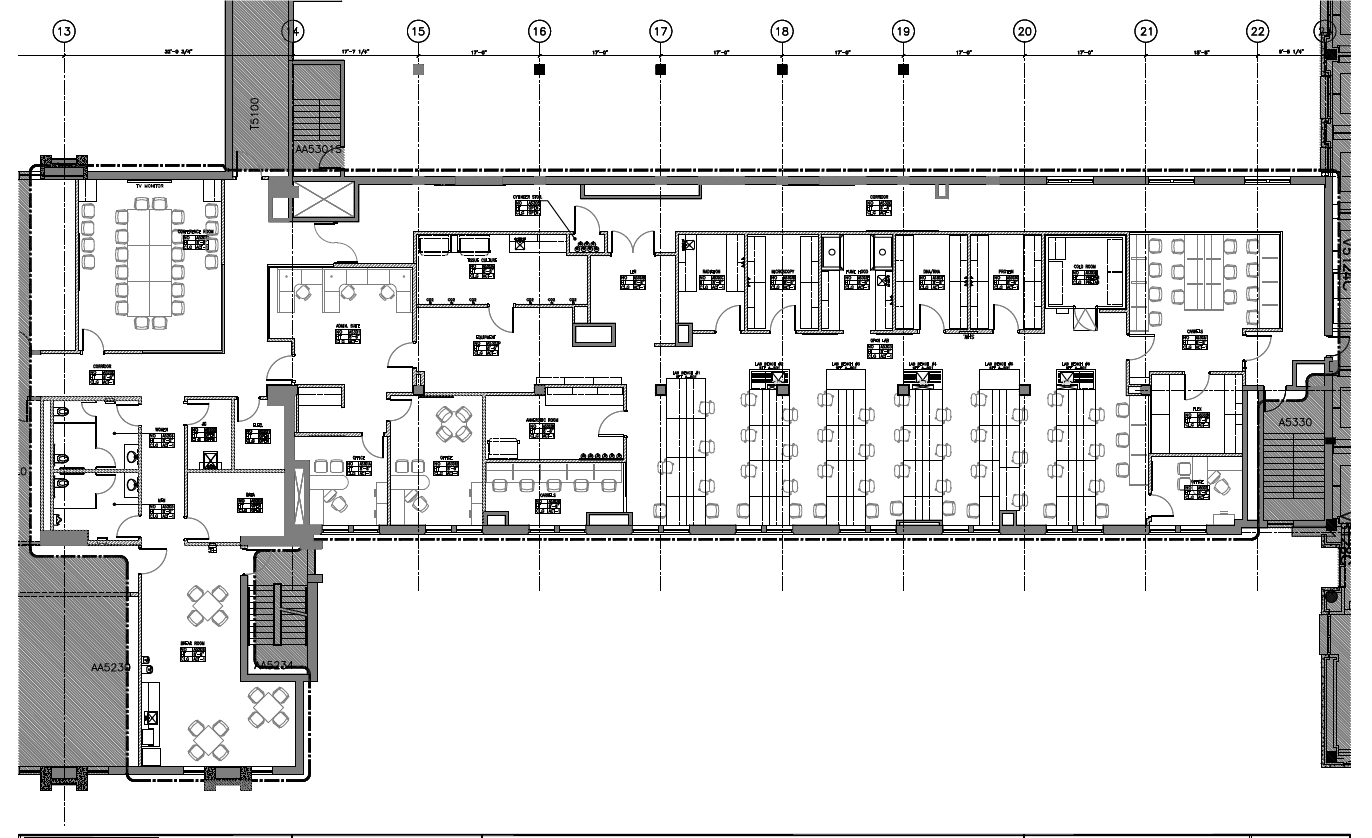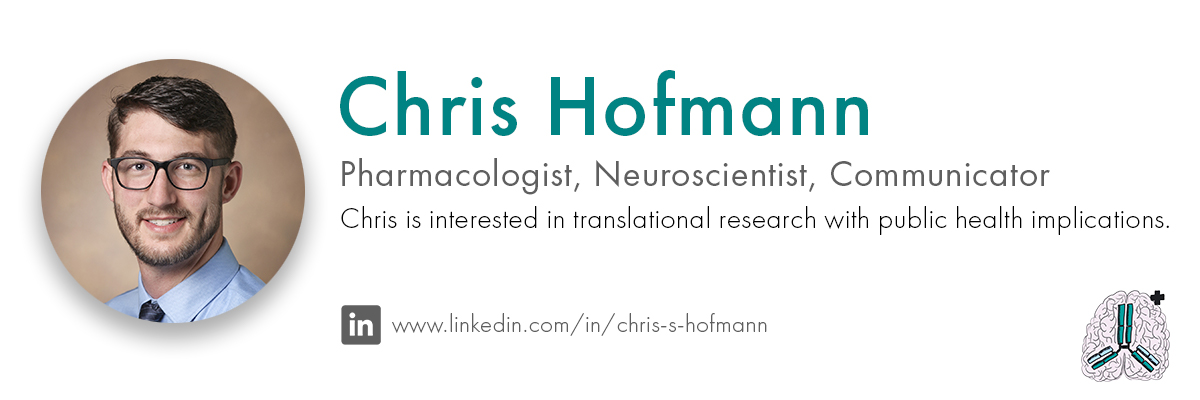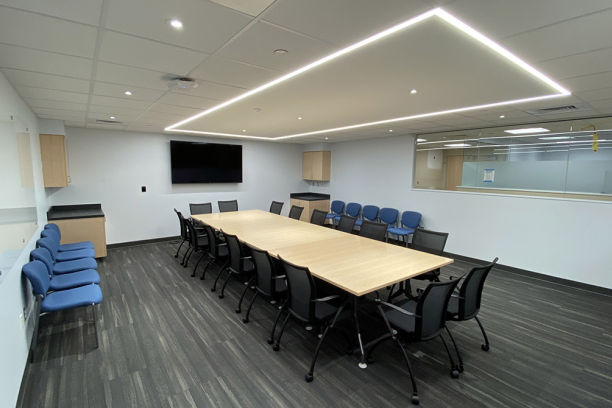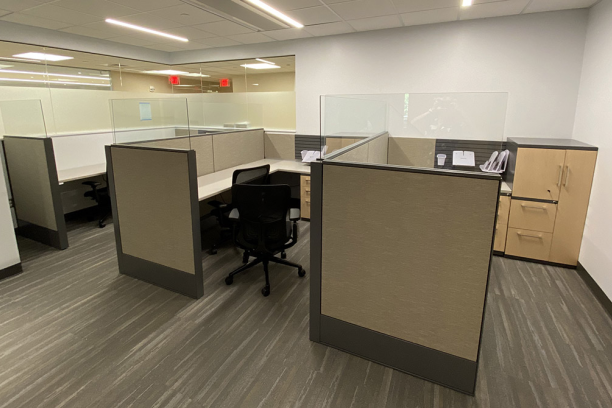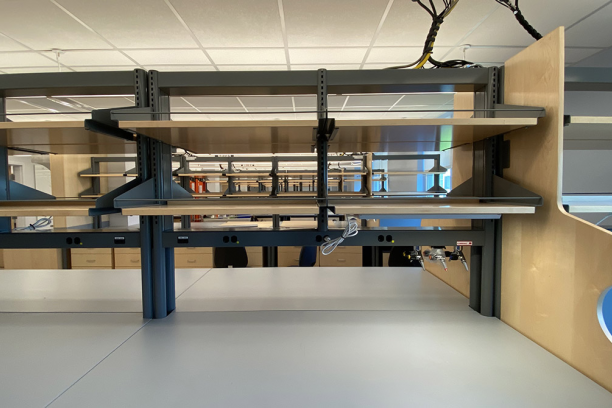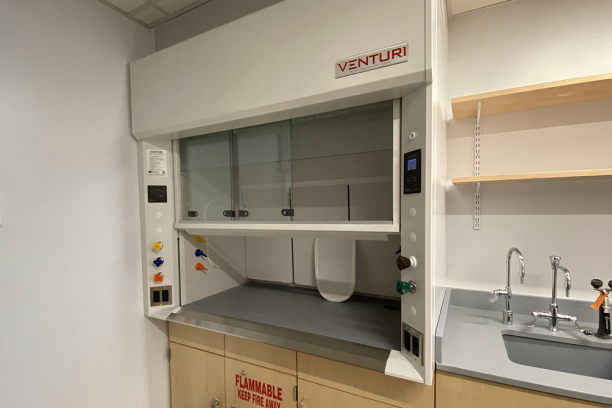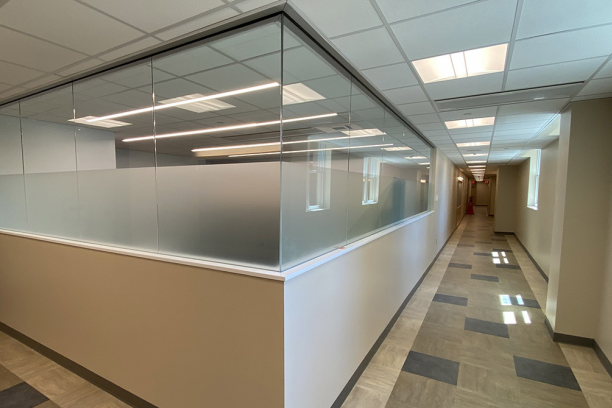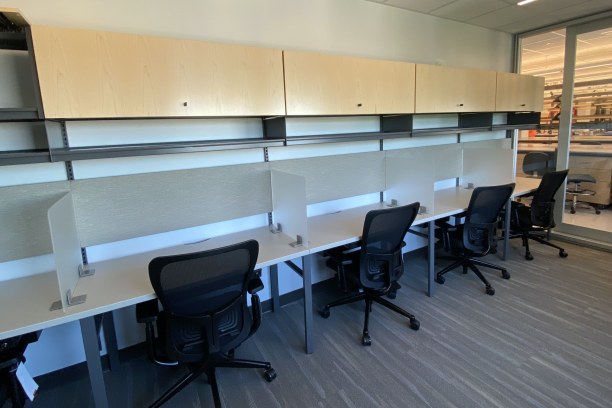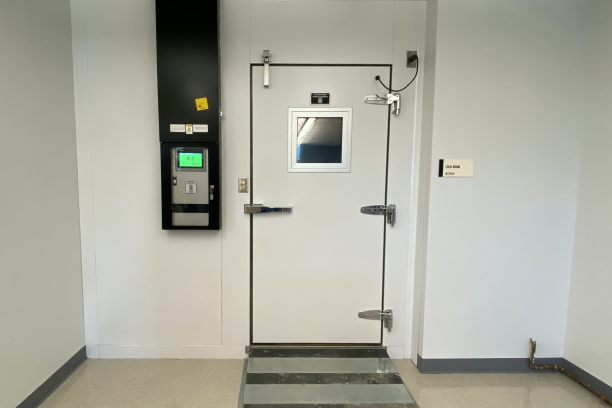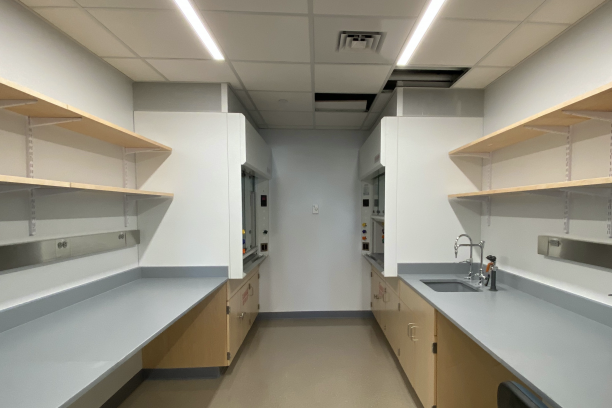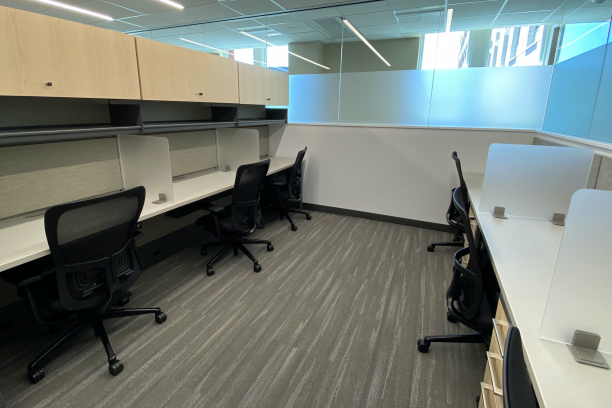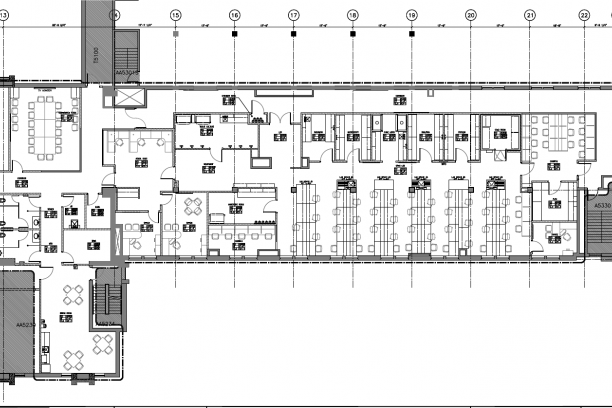VI4 Excited for New growth
Since its inception, 3 years ago, the Vanderbilt Institute for Infection, Immunology, and Inflammation has grown to include 166 faculty and numerous postdocs, students, and staff working together to acquire substantial public and private research funds and to publish rigorous scientific manuscripts in top tier journals. This success stems from a dedicated community who now exist under a framework to maximize education, resources, and collaboration. Critical to meeting our mission is the ability to foster an environment for growth and continued collaboration with state-of-the-art equipment and resources. The VI4 is excited to announce a series of renovations, equipment, and new programs to continue to grow and serve the research community and become a world leader in Infection, Immunology, and Inflammation research.
A “new building” focused on infection and immunology
Central to our continued growth is creating a space where labs can not only conduct experiments with top-of-the-line spaces and equipment but also work in proximity to one another, fostering a collaborative environment. To accomplish this goal, extensive renovations have begun to the 4th and 5th floors of Medical Center North which serves as the institute’s new hub. The first phase of renovation, consisting of 6,615ft2 of administrative and laboratory spaces were recently completed in April. Following the new VI4 administrative space is an additional 5 phases of planned renovation, updating an additional 25,785ft2 of new lab space.
The renovated floor plan is expected to house 25-30 laboratories, substantially increasing the capacity of this space.
Equipment purchases
As the adage goes, one must “use the right tool for the job.” Answering the pioneering questions of science means enhancing our technical capabilities, putting the best tools of the trade in the hands of our researchers. The VI4 has invested in several new technologies and support systems to enhance the research capabilities of our talented scientists.
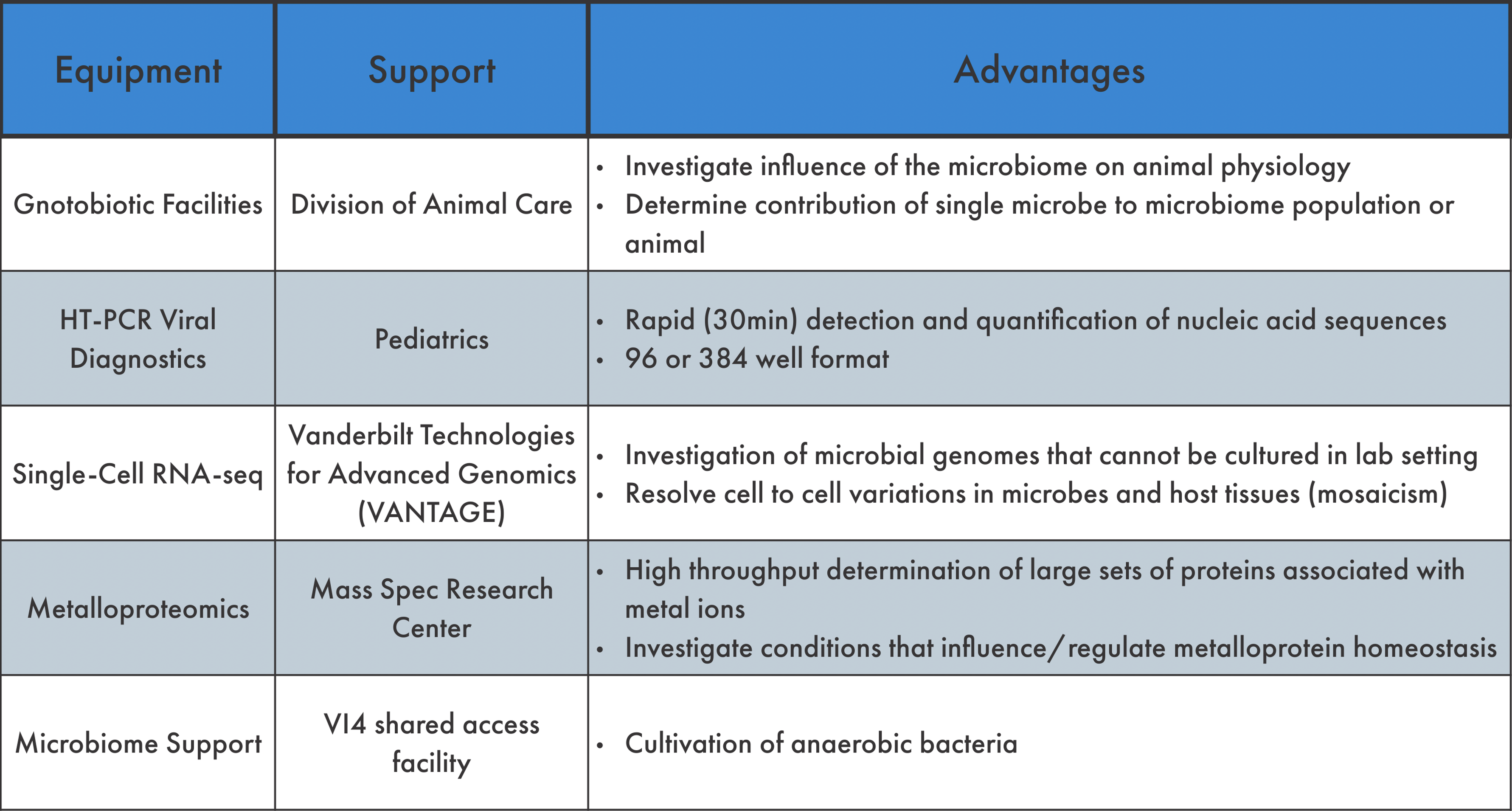
Programs
Program in Gnotobiotic Research
The VI4 is proud to launch several new programs which have been specially developed by our faculty to train new scientists and investigate the pressing scientific questions of the future with industry leading techniques.
VI4 has recently launched the Program in Gnotobiotic Research. Gnotobiotic defines a condition in which all microorganisms contained within the research environment have been either eliminated or are known. In a system with a plethora of microorganisms it can be difficult to assess the contribution of the unique organism under study; gnotobiotic facilities allow for more control over the microenvironment and enhance our researchers’ ability to ask critical questions and determine definitive answers.
The VI4 has developed facilities capable for studies in 2 animal model systems (zebrafish and mice) as well as incorporating an anaerobic chamber for experimental conditions involving microbial function in an oxygen-free environment. If you are interested in using the fish facilities or anaerobic chamber to enhance your research, we have good news; these facilities are available for use by Vanderbilt research faculty! For more information, contact the VI4 Senior Program Manager, Megan Schladt. The mouse facility is currently only accessible via collaboration with Drs. Mariana Byndloss or Wenhan Zhu.
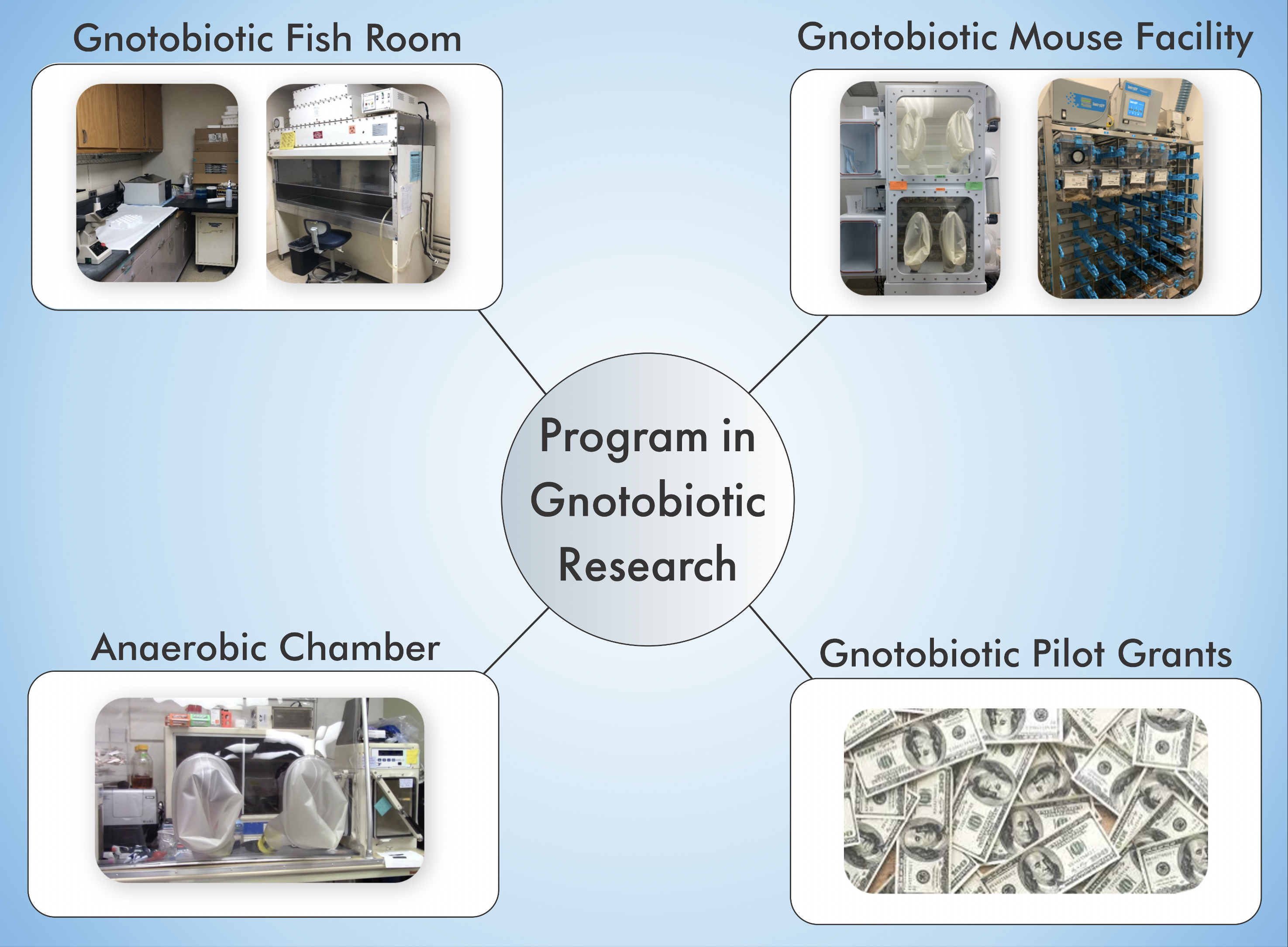
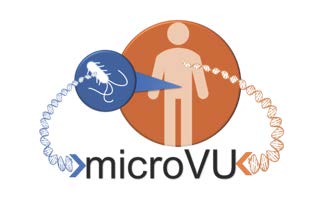 : A Clinical Microbial Compliment to BioVU
: A Clinical Microbial Compliment to BioVU
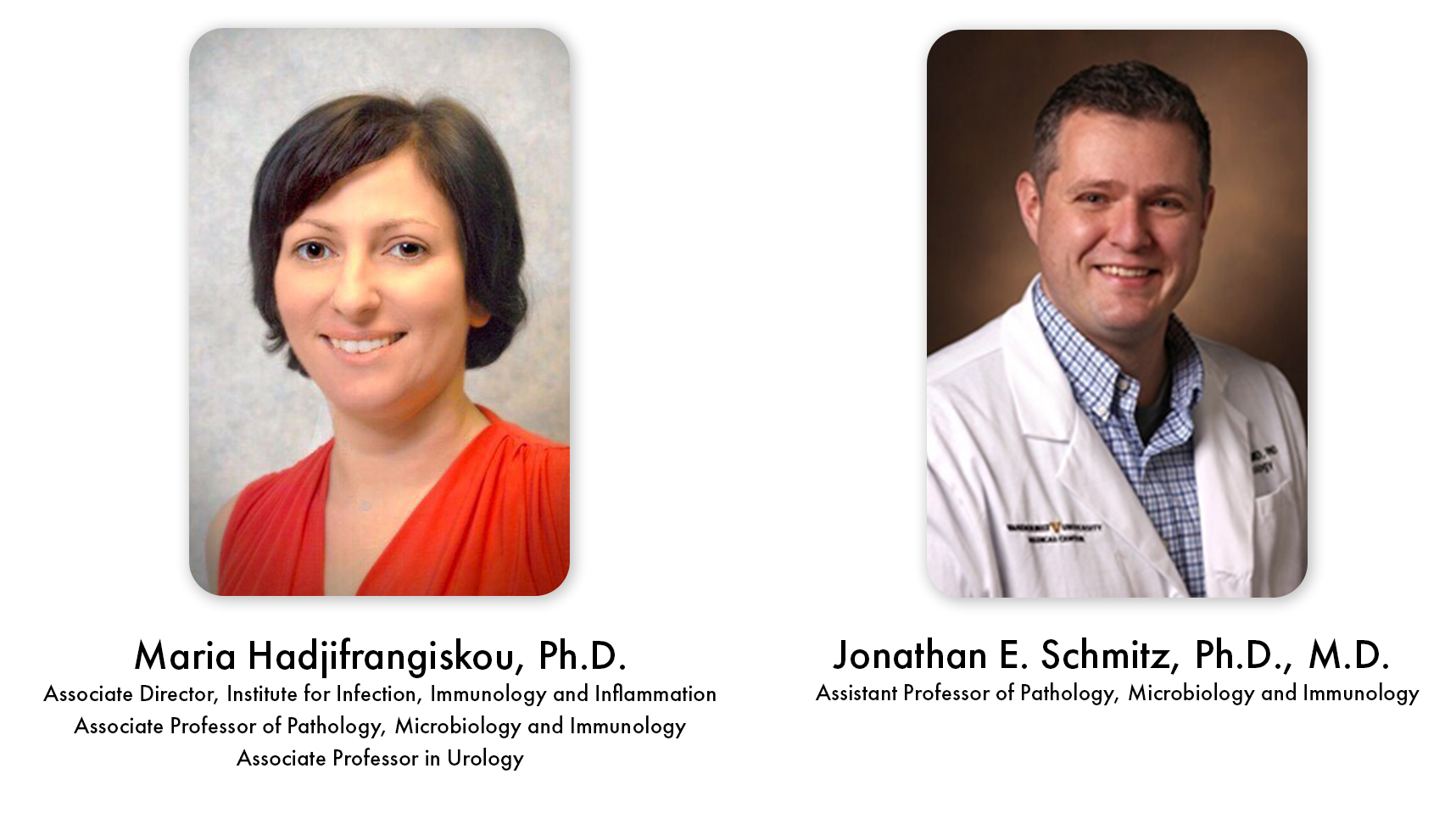
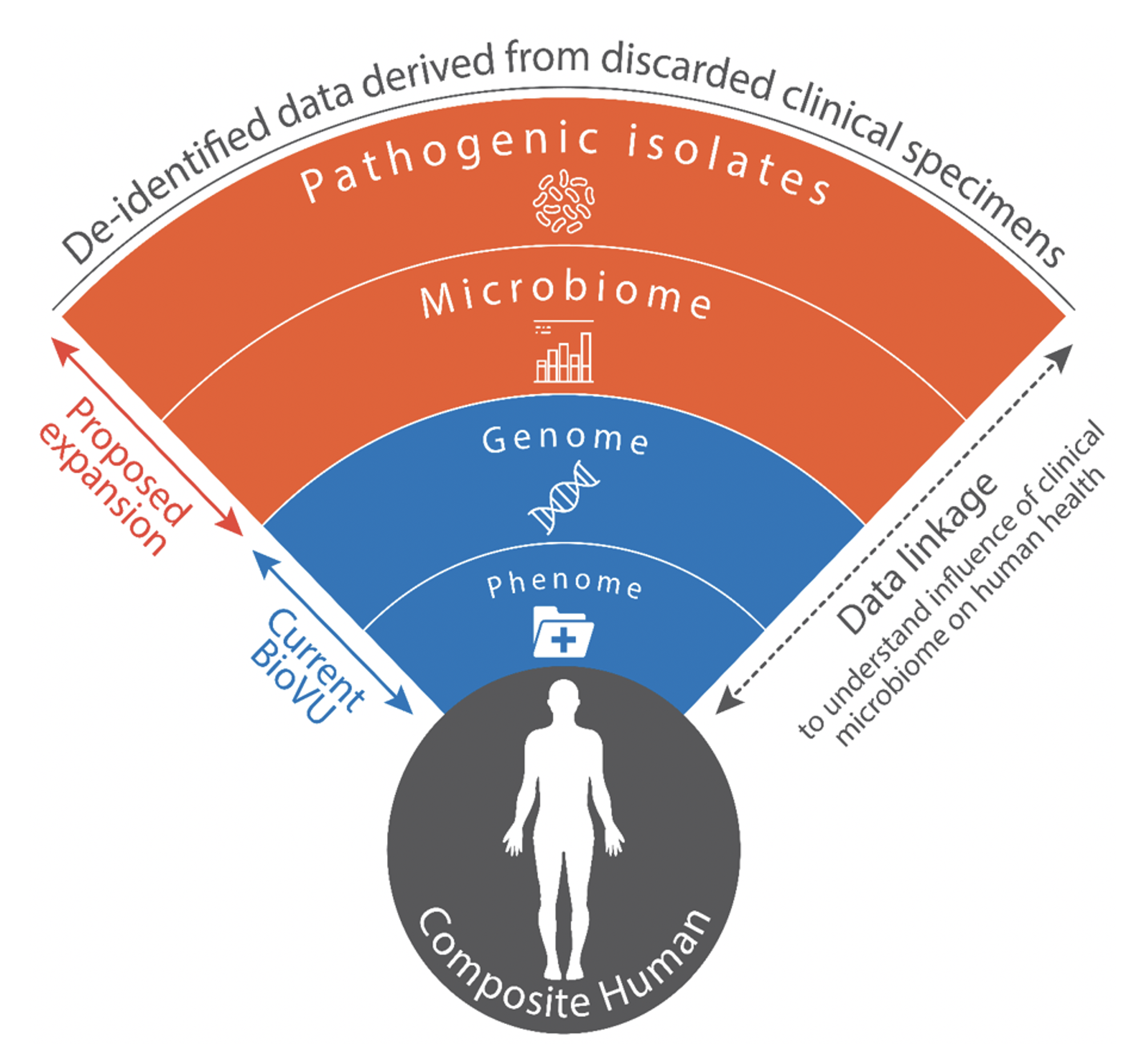
In 2004, Vanderbilt began the massive undertaking of linking de-identified patient clinical records with genetic and biologic samples. This repository became the now widely known and massively popular BioVU, a tool which has been instrumental in answering difficult research questions. Now, Drs. Maria Hadjifrangiskou and Jonathan Schmitz are introducing a new biobanking initiative named MicroVU.
It has become increasingly clear in recent years that our bodies’ makeup of microorganisms, called the microbiome, can affect our susceptibility to infection, how we respond to certain pharmaceutical treatments, and more. Additionally, during infection, the diversity among microorganisms can change, leading to an array of different disease outcomes and treatment needs that are difficult to parse apart. Each of these situations require further study to fully examine the intricacies of these host:microbe interactions. With MicroVU, researchers will now be able to investigate the complex environment of the microbiome and infection with data from real human subjects.
MicroVU received funding from TIPS, the VI4, the NIDDK, PMI, and Urology to begin the biobanking and deeper investigation of isolates from the urinary tract and sterile-sites, or sites that no microbes are known to exist in a healthy state. More recently, additional capabilities were expanded via TIPS VRA funding to include microbiome sample banking and the collection and storage of massive amounts of genomic, proteomic, metabolomic, and transcriptomic information in collaboration with VMI, greatly enhancing the ability to fully characterize microbial isolates. To handle the large amounts of data generated, an informatic architecture was developed in collaboration with VICTR to provide a framework by which this information is stored and available for use by the research community.
Within the last decade, enormous advances have been achieved in the ability to handle massive amounts of data, and to use computer systems to analyze and extract information from these data in order to discover new insights and patterns beyond anything previously possible. Computational biology approaches supplement and enhance traditional approaches for the study of infectious diseases, helping address critical questions about the pathogens we face today. The immense analytic power and speed of computational programs make them particularly well suited for the biological sciences and define a new cutting edge in the field.
In our effort to develop world-class resources and programs, the VI4 partnered with PMI and Medicine to launch the Program in Computational Microbiology and Immunology, a Trans-institutional initiative to train and build a community of computational biologists at Vanderbilt. In August 2020 the program was officially unveiled under the directorship of Ivelin Georgiev, an Associate Professor in the Department of Pathology, Microbiology, and Immunology, and a Ph.D. graduate of Duke University in Computer Science and former co-head of the Structural Bioinformatics Core Section at the Vaccine Research Center (VRC) for the NIH.
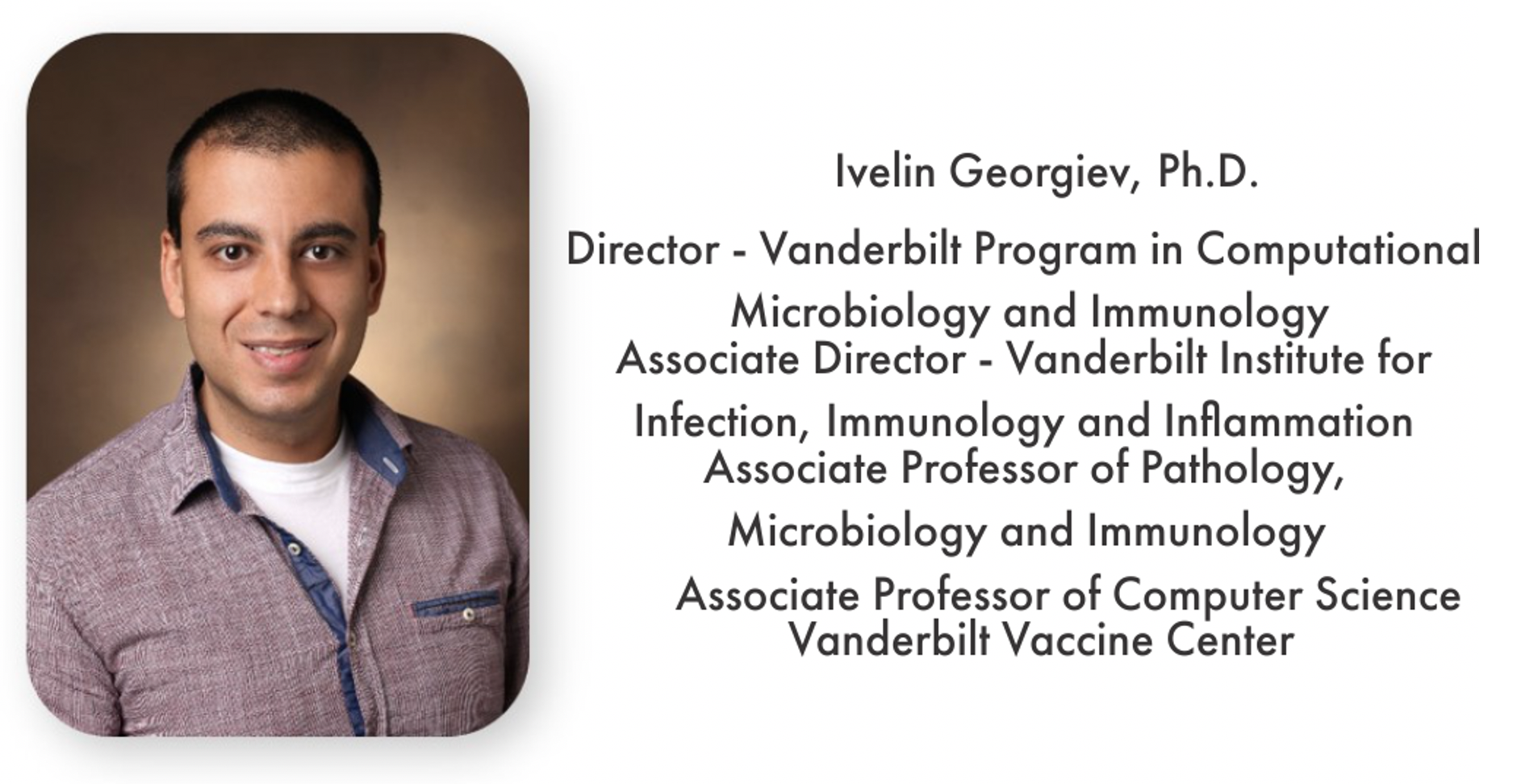
Central to our continued growth is creating a space where labs can not only conduct experiments with top-of-the-line spaces and equipment but also work in proximity to one another, fostering a collaborative environment. To accomplish this goal, extensive renovations have begun to the 4th and 5th floors of Medical Center North which serves as the institute’s new hub. The first phase of renovation, consisting of 6,615ft2 of administrative and laboratory spaces were recently completed in April. Following the new VI4 administrative space is an additional 5 phases of planned renovation, updating an additional 25,785ft2 of new lab space.
The renovated floor plan is expected to house 25-30 laboratories, substantially increasing the capacity of this space.
Click here to explore the new VI4 Headquarters!
Equipment purchases
As the adage goes, one must “use the right tool for the job.” Answering the pioneering questions of science means enhancing our technical capabilities, putting the best tools of the trade in the hands of our researchers. The VI4 has invested in several new technologies and support systems to enhance the research capabilities of our talented scientists.

Programs
Program in Gnotobiotic Research
The VI4 is proud to launch several new programs which have been specially developed by our faculty to train new scientists and investigate the pressing scientific questions of the future with industry leading techniques.
VI4 has recently launched the Program in Gnotobiotic Research. Gnotobiotic defines a condition in which all microorganisms contained within the research environment have been either eliminated or are known. In a system with a plethora of microorganisms it can be difficult to assess the contribution of the unique organism under study; gnotobiotic facilities allow for more control over the microenvironment and enhance our researchers’ ability to ask critical questions and determine definitive answers.
The VI4 has developed facilities capable for studies in 2 animal model systems (zebrafish and mice) as well as incorporating an anaerobic chamber for experimental conditions involving microbial function in an oxygen-free environment. If you are interested in using the fish facilities or anaerobic chamber to enhance your research, we have good news; these facilities are available for use by Vanderbilt research faculty! For more information, contact the VI4 Senior Program Manager, Megan Schladt. The mouse facility is currently only accessible via collaboration with Drs. Mariana Byndloss or Wenhan Zhu.

 : A Clinical Microbial Compliment to BioVU
: A Clinical Microbial Compliment to BioVU

In 2004, Vanderbilt began the massive undertaking of linking de-identified patient clinical records with genetic and biologic samples. This repository became the now widely known and massively popular BioVU, a tool which has been instrumental in answering difficult research questions. Now, Drs. Maria Hadjifrangiskou and Jonathan Schmitz are introducing a new biobanking initiative named MicroVU.

It has become increasingly clear in recent years that our bodies’ makeup of microorganisms, called the microbiome, can affect our susceptibility to infection, how we respond to certain pharmaceutical treatments, and more. Additionally, during infection, the diversity among microorganisms can change, leading to an array of different disease outcomes and treatment needs that are difficult to parse apart. Each of these situations require further study to fully examine the intricacies of these host:microbe interactions. With MicroVU, researchers will now be able to investigate the complex environment of the microbiome and infection with data from real human subjects.
MicroVU received funding from TIPS, the VI4, the NIDDK, PMI, and Urology to begin the biobanking and deeper investigation of isolates from the urinary tract and sterile-sites, or sites that no microbes are known to exist in a healthy state. More recently, additional capabilities were expanded via TIPS VRA funding to include microbiome sample banking and the collection and storage of massive amounts of genomic, proteomic, metabolomic, and transcriptomic information in collaboration with VMI, greatly enhancing the ability to fully characterize microbial isolates. To handle the large amounts of data generated, an informatic architecture was developed in collaboration with VICTR to provide a framework by which this information is stored and available for use by the research community.
Within the last decade, enormous advances have been achieved in the ability to handle massive amounts of data, and to use computer systems to analyze and extract information from these data in order to discover new insights and patterns beyond anything previously possible. Computational biology approaches supplement and enhance traditional approaches for the study of infectious diseases, helping address critical questions about the pathogens we face today. The immense analytic power and speed of computational programs make them particularly well suited for the biological sciences and define a new cutting edge in the field.
In our effort to develop world-class resources and programs, the VI4 partnered with PMI and Medicine to launch the Program in Computational Microbiology and Immunology, a Trans-institutional initiative to train and build a community of computational biologists at Vanderbilt. In August 2020 the program was officially unveiled under the directorship of Ivelin Georgiev, an Associate Professor in the Department of Pathology, Microbiology, and Immunology, and a Ph.D. graduate of Duke University in Computer Science and former co-head of the Structural Bioinformatics Core Section at the Vaccine Research Center (VRC) for the NIH.

The VI4 is excited and proud to announce these new, innovative, and collaborative programs. We believe that the installation of such resources is essential to maintaining our commitment to world-class education and research in the fields of infection, immunology, and inflammation to increase knowledge and improve human health. Check out our home page for more information about the institute and be sure to stay tuned to ImmuKnow+ for more information about our future growth.

